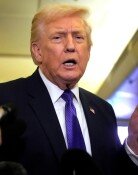S. Korea decides to give up developing country status in the WTO
S. Korea decides to give up developing country status in the WTO
Posted October. 22, 2019 07:30,
Updated October. 22, 2019 07:30
The South Korean government has decided to give up developing country status in the World Trade Organization (WTO) that gives the country benefits in subsidies and tariff reductions. Much controversy is hence expected between the agricultural sector and the government as the former demands a compensation of 10 trillion won in return while the latter argues that the decision will have no impact on the agricultural industry.
According to officials of the South Korean government and National Assembly on Monday, South Korea has decided to give up its developing country status in the WTO and is mulling over the timing of announcement. It is highly likely that Economy and Finance Minister and Deputy Prime Minister Hong Nam-ki will preside over a meeting of finance ministers and make the announcement there. Government officials, including Vice Finance Minister Kim Yong-beom, are scheduled to meet with domestic agricultural organizations at the Korea Chamber of Commerce and Industry (KCCI) on Tuesday to persuade them of the decision.
The U.S. has been calling for the WTO to reform its rules as China and India have grown rapidly taking advantage of their developing country status in the organization. The world’s largest economic organization stipulates the benefits to be received by developing countries in about 150 articles in its agreement. The benefits include tariff benefits for the items exported from developing countries to developed countries and subsidies given to domestic industries. U.S. President Donald Trump said on July 26 that if there was no progress within 90 days, the U.S. would unilaterally stop treating those nations as developing countries. The deadline set by President Trump falls on October 23.
The South Korean government views that the country will receive the same benefits in the agricultural sector even after it gives up its developing country status. That is because the U.S. said numerous times in official WTO meetings and unofficial discussions in the past that countries will continue to take advantage of the same tariff benefits. Furthermore, Seoul thinks that there are few negotiating table left to argue the country’s developing status as the Doha Development Agenda (DDA), which is the last trade negotiation-round of the WTO, has been pending for 19 years.
Seoul has taken into consideration the fact that it has little justifiable reason to maintain its developing country status when it has many pending issues to discuss with Washington. Defense cost negotiations with the U.S. for next year’s shared defense costs have already begun and the U.S. will determine on November 13 whether to invoke Section 121 tariffs on automotive imports from South Korea. “There is a possibility that a trade spat between the U.S. and China would develop into a spat between the U.S. and South Korea if the latter maintains its developing country status,” a South Korean government official said.
The domestic agricultural industry is asking for 10 trillion won in compensation for the country’s giving up of developing country status. But the government has not come up with proper countermeasures on the grounds that the decision would have no impact on the industry. The Federation of Korean Agricultural and Stockbreeding Industries formed an emergency response committee and asking the government to increase the agricultural budget to 5% of the nation’s budget and make up for the shortage in cooperative funds in farming and fishing communities. A 5% of next year’s national budget is equivalent to 25.7 trillion won, which is bigger than the next year’s budget (15.3 trillion won) for the Agriculture, Food, and Rural Affairs Ministry.
Hye-Ryung Choi herstory@donga.com



![17년 망명 끝에, 부모 원수 내쫓고 집권[지금, 이 사람]](https://dimg.donga.com/c/138/175/90/1/wps/NEWS/IMAGE/2026/02/18/133376197.3.jpg)



